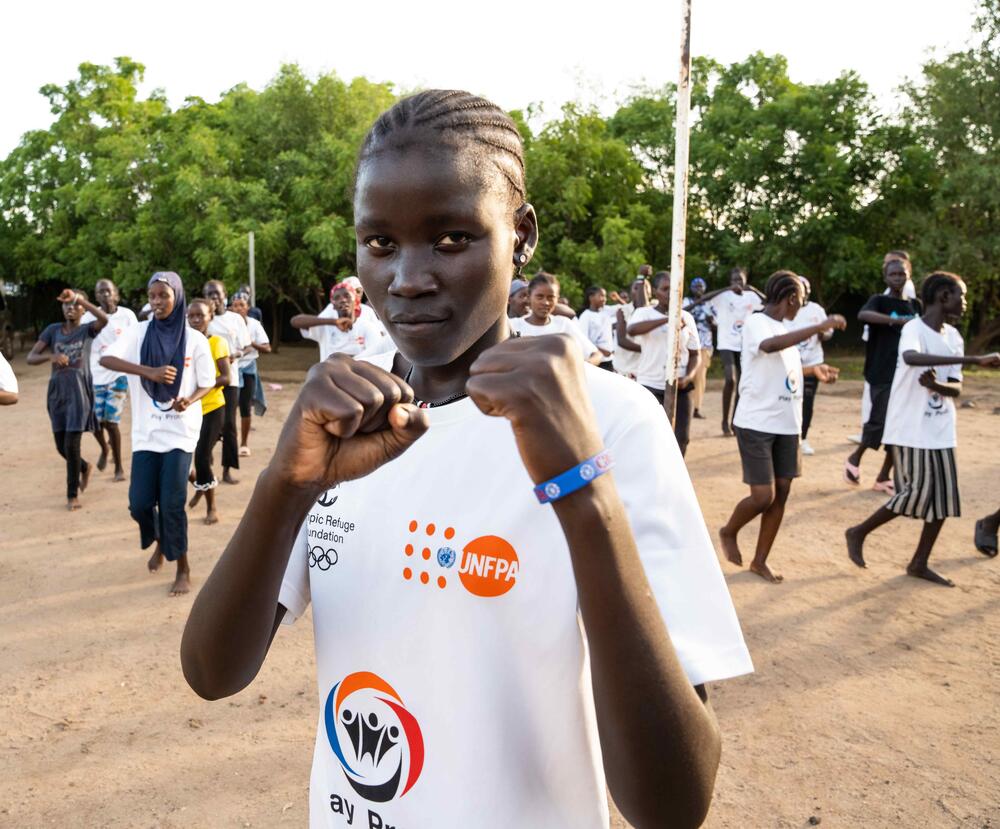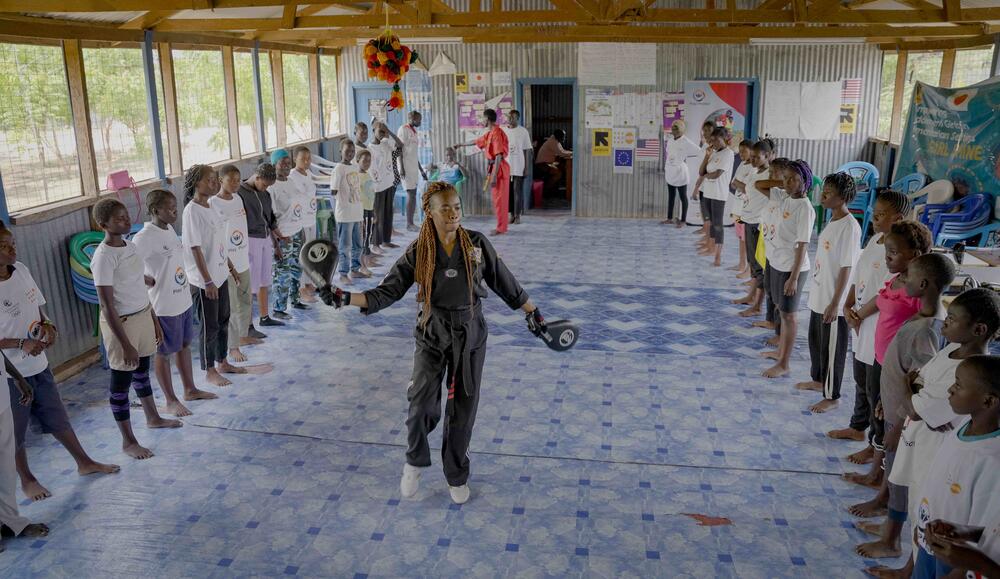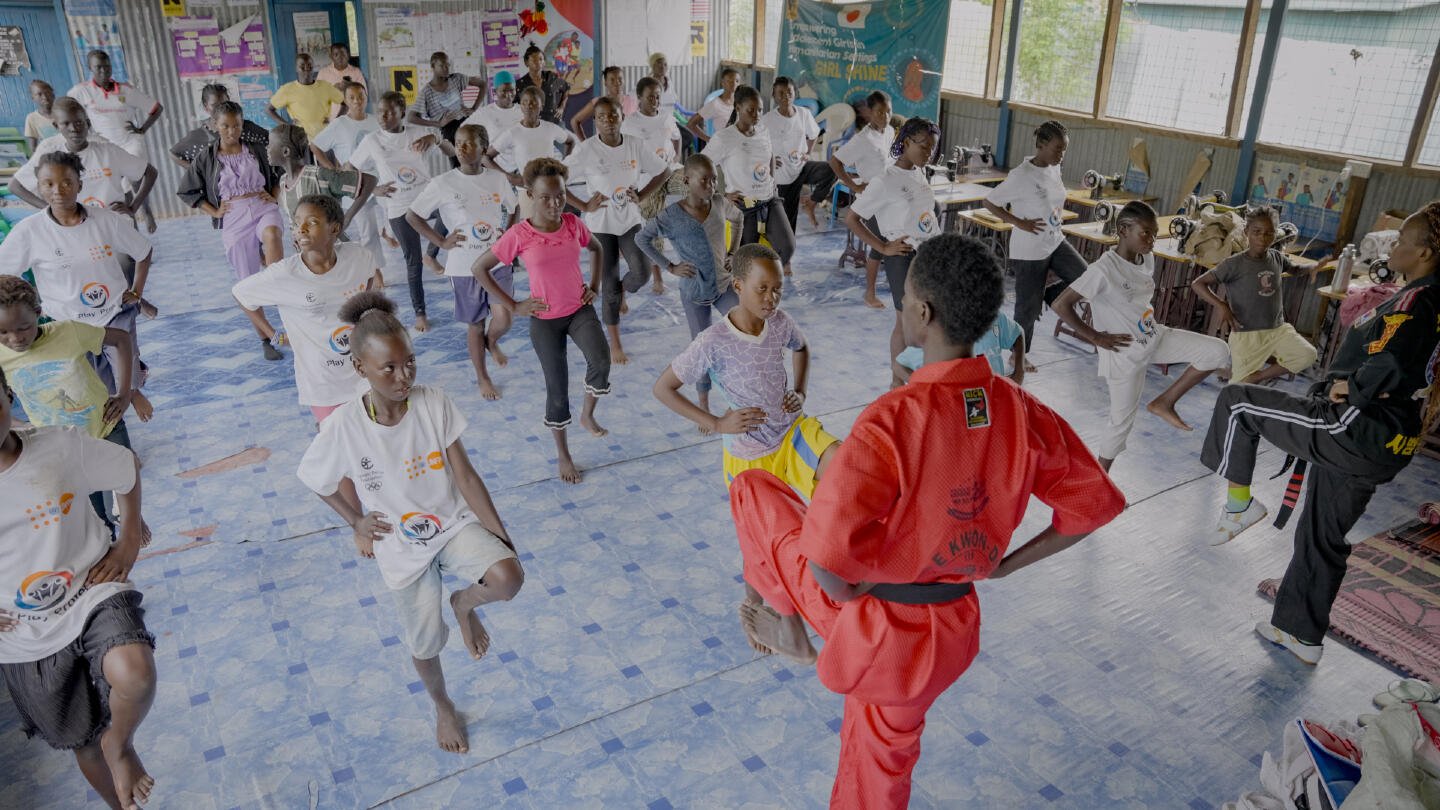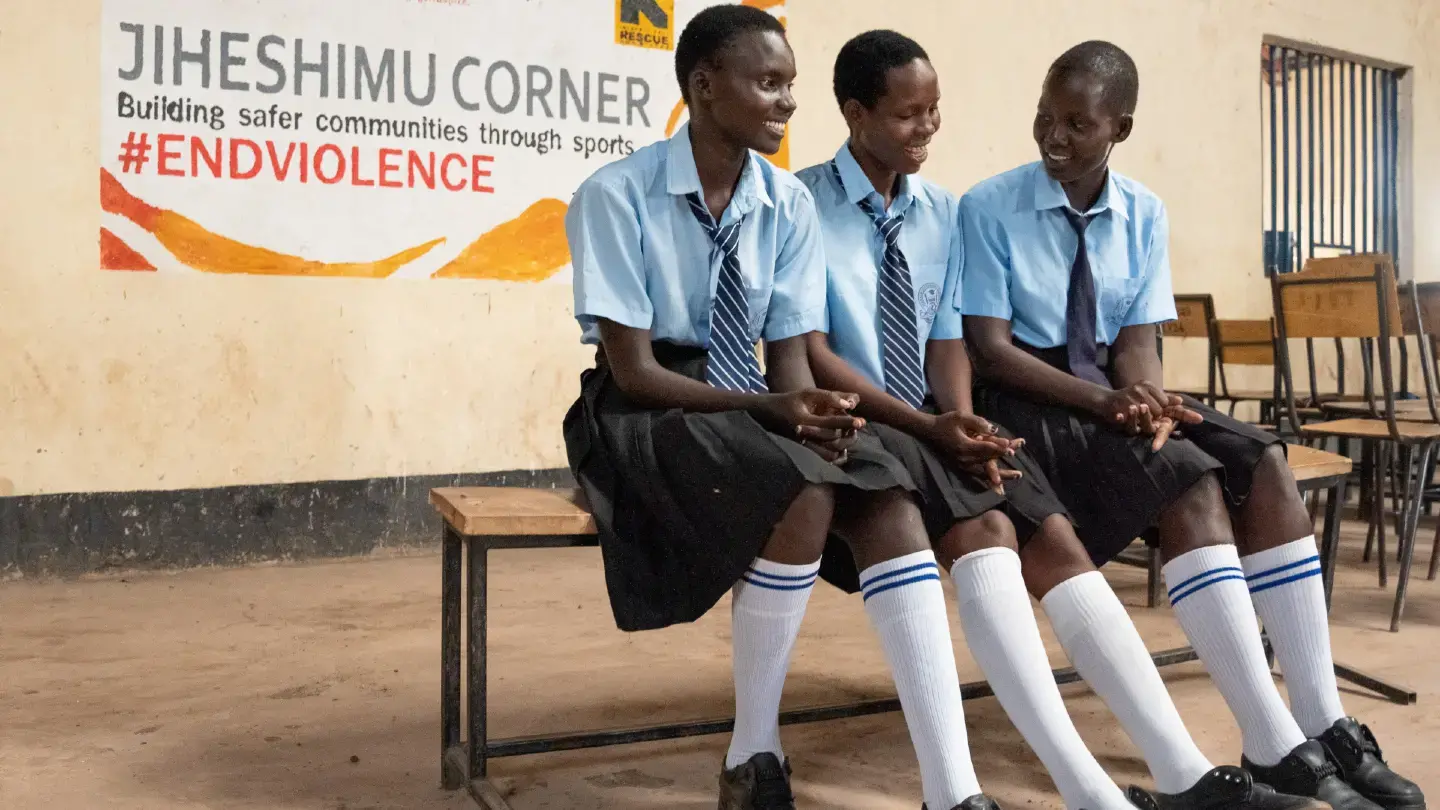Every Saturday, adolescent girls aged 12 to 18 gather at a women’s empowerment center in Kakuma Refugee Camp’s Area 1. They are there to learn self-defense through Taekwondo, led by a skilled instructor. Before the class begins, 17-year-old Ajok Chol Atem takes the lead, organizing the space and guiding warm-up exercises.
“I love Taekwondo because it teaches self-defense and helps me relieve stress through exercise,” says Ajok, a South Sudanese refugee who fled conflict with her family. Ajok has been training for seven months as part of the Play2Protect project, an initiative launched by UNFPA with funding from the Olympic Refuge Foundation. In partnership with organizations like the International Rescue Committee, Kenya Red Cross, and FilmAid Kenya, the program uses sports to foster safer and more inclusive communities while addressing gender-based violence.

Ajok’s journey in Taekwondo began with community worker Imani Bishambamba, who introduced her to the classes. “Since joining, Ajok’s confidence has soared. She’s developed strong leadership skills and now serves as the group’s captain,” Imani notes.
Before each session, Imani conducts talks on gender-based violence, encouraging girls to share challenges like period poverty, abuse, and domestic conflict. With resources from the women’s center, participants receive support and dignity kits containing essentials like sanitary pads.
Kakuma is home to 297,258 refugees from various countries including South Sudan, Ethiopia, Somalia, and the Democratic Republic of Congo. More than 100 refugee girls drawn from different nationalities are now enrolled in the weekly Taekwondo classes.
As part of efforts to boost the capacity of local coaches and the skills of young taekwondo practitioners, UNFPA enlisted the support of national taekwondo coach Carolyne Ambani who periodically holds Taekwondo clinics at Kakuma refugee camp and Kalobeyei Integrated Settlement. These sessions have helped to strengthen the Play2Protect project by helping participants to connect with skilled mentors who have achieved great success through sports. “The girls come with existing biases but leave with friendships and trust, breaking barriers and fostering community cohesion,” says Coach Ambani.

Coach Caroline Ambani leads a Taekwondo class in Kakuma Refugee Camp.
Beyond physical fitness, Taekwondo builds mental resilience, which is vital for the girls’ psychosocial well-being. Initially met with parental skepticism, the program has gained community support as parents witness its benefits. “Now, they’re advocates for their daughters’ participation,” Imani says.
The Play2Protect initiative has transformed lives in Kakuma and Kalobeyei, engaging over 35,000 youth in activities like football, volleyball, and chess. “This project demonstrates the immense value of sports in fostering resilience and inclusion,” says UNFPA Representative Anders Thomsen. “ By empowering adolescent girls and young women, we are building stronger and more resilient communities and a future free from gender-based violence .”



